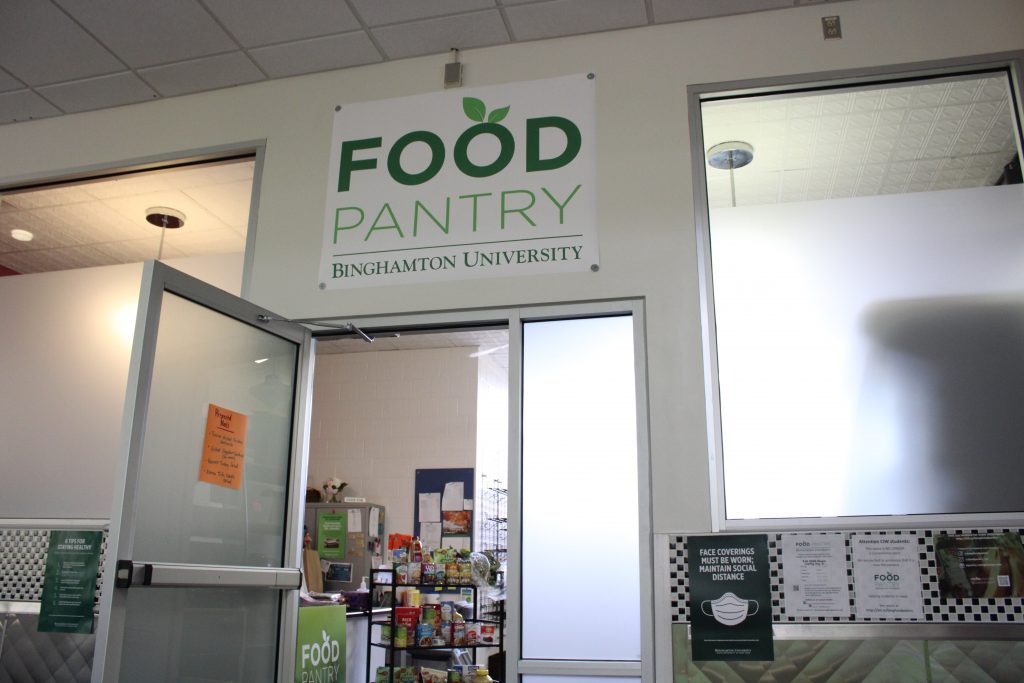On Oct. 16, New York State Gov. Andrew Cuomo announced that the Supplemental Nutrition Assistance Program (SNAP) had been expanded to nearly 75,000 low-income college students.
SNAP supplements the food budget of low-income individuals and families so they can purchase healthy food. New York is also offering a shortened SNAP application for individuals on fixed incomes to encourage greater enrollment by older and disabled qualifying individuals. There is a permanent expansion of the program as well as a temporary expansion.
The Consolidated Appropriations Act of 2021 is a temporary change effective until 30 days after the COVID-19 federal public health emergency is lifted. This act will address pandemic-driven food insecurity and economic downturn. It expands qualifications for SNAP to students who are eligible for work-study without requiring them to be enrolled in the work-study program. It also expands eligibility for students with an expected family contribution of zero dollars for the current academic year under the federal student financial aid rules, determined under the Free Application for Federal Student Aid (FAFSA).
The permanent change expands SNAP eligibility to students attending a SUNY or CUNY community college, comprehensive college or technology college enrolled at least half-time in a qualified career and technical education (CTE) program. It also expands eligibility to students enrolled in remedial courses, basic adult education, literacy, English as a second language courses or CTE programs at least half-time at any of the 10 Education Opportunity Centers. The goal of this permanent change is to improve food security for New York’s economically disadvantaged students.
These changes are in response to the pandemic and were also part of Cuomo’s 2018 State of the State Address, where he announced a plan to combat hunger for students in kindergarten through college. Part of this plan, which has already been implemented, included the establishment of food pantries at SUNY or CUNY institutions to provide on-campus, stigma-free access to food.
Madalyn Petherick, a graduate assistant and a first-year master’s student in the public administration and student affairs administration dual degree program, works at the Binghamton University Food Pantry and oversees their operations and internship program.
“Before the expansion of the SNAP program, it was very hard for students to qualify for the benefits,” Petherick said. “The SNAP program assumed that students were financially dependent on their parents or financial aid, and they didn’t need assistance. [COVID-19] exacerbated financial difficulties for college students and the expansion of the program is directly fighting food insecurity for those who are informed about the expanded qualifications.”
BU President Harvey Stenger is thankful for the city of Binghamton and SUNY system employees for supporting students struggling with food insecurity, especially during the pandemic.
“There are students struggling with food insecurity and failing to maintain proper nutrition because of low income or difficulty in accessing food,” Stenger said. “I commend [SUNY Chancellor Jim Malatras] for his efforts as our food pantry and those across the SUNY system provide an absolutely necessary resource for students’ well-being, supporting them so they can achieve their academic goals.”
The BU Food Pantry has stayed open through the pandemic since students switched to remote learning last March, with their services being needed by students who lost their jobs, international students unable to return home due to travel restrictions or those who lost their on-campus jobs while still needing to pay off-campus rent.
According to Linda Salomons, assistant director of parent and family programs and Food Pantry operations at BU, the BU Food Pantry is a comfortable and judgement-free service for students facing food insecurity or hard times. They provide perishable and nonperishable grocery items and hygiene products.
In response to the growing need for their services, the BU Food Pantry created an online ordering system where students could place orders for pick-up in order to limit exposure and keep people safe. The BU Food Pantry was able to continue helping students through the spring 2020 semester and summer as staff in the Dean of Students Office helped.
“The pantry serves students who are struggling financially or in emergency situations free of cost and without judgment,” Petherick said. “With a student ID, students can place an order every week to help with the cost of groceries.”
On behalf of the BU Food Pantry, Salomons thanked the many students, student organizations and departments that have supported them this past year. Some of the organizations she thanked included Off Campus College Council (OC3), the Student Philanthropy Committee, Multicultural Resource Center (MRC), Phi Delta Epsilon, Scholar’s Program, BU Dining Services (BUDS), BU Libraries, BU Acres and many more.
If students wish to get more involved in helping their community with food insecurity, Salomons recommended students apply to participate in their internship for academic credit via Handshake.
“Students or student organizations can [also] coordinate their own food drive on our behalf,” Salomons said. “Any student can email us at bpantry@binghamton.edu if they are interested in helping us. We are hoping to develop many volunteer opportunities for students in the fall when the campus opens up again.”
Petherick said interning or volunteering at the BU Food Pantry is a great experience for students who want to learn about food insecurity in the BU community.
“Our undergraduate interns are the ones serving students on a day-to-day basis,” Petherick said. “Aside from the operational tasks in the pantry like stocking shelves and assisting students, our interns can create a team project to raise awareness or solve a problem we have at the pantry to leave a legacy behind. It is a great hands-on experience to learn more about food insecurity on our campus. If students are around this summer, we are also accepting applications for summer volunteers. Both applications are on Handshake.”



